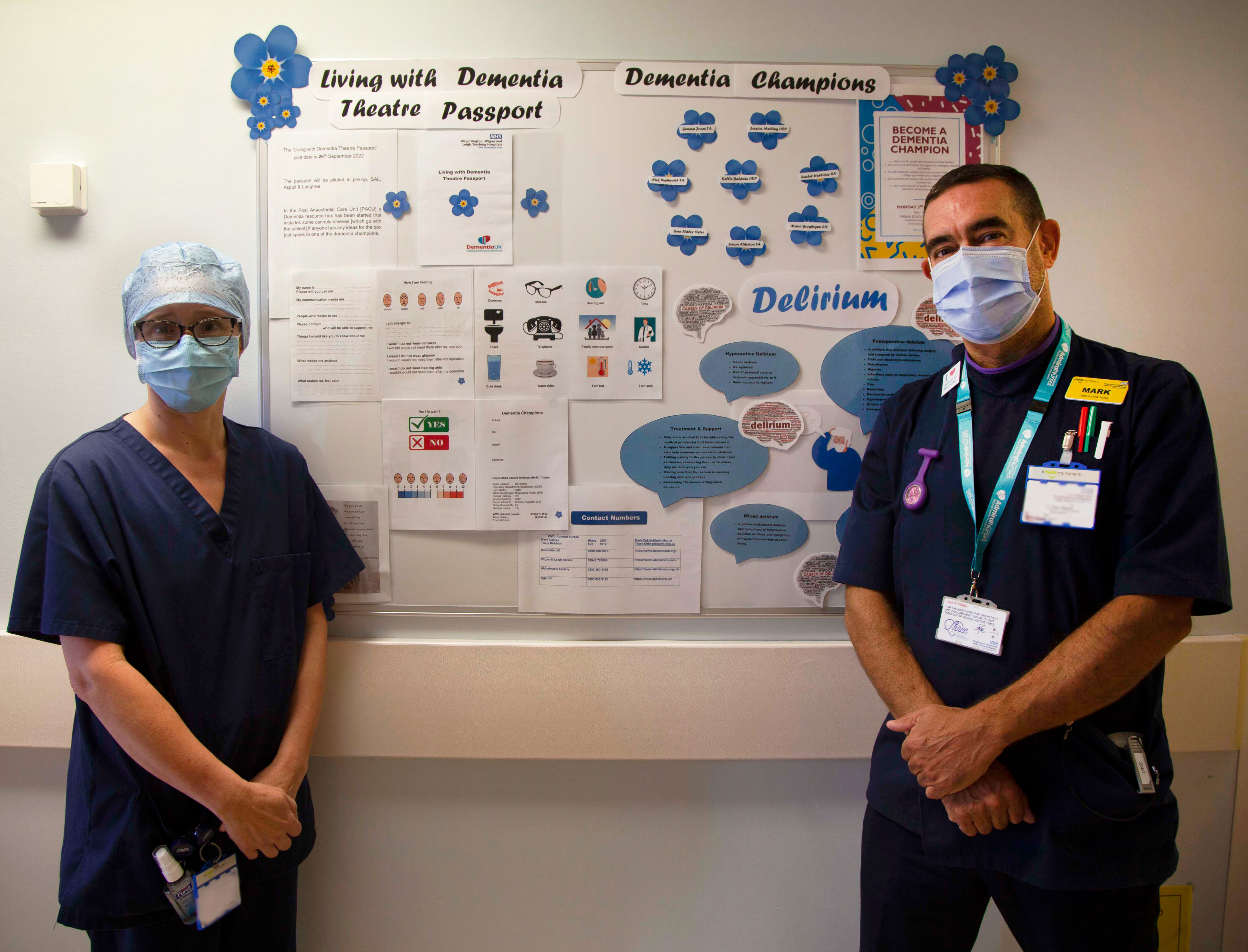
A member of Wrightington, Wigan and Leigh Teaching Hospitals NHS Foundation Trust (WWL) staff has developed an innovative project to help improve communication for patients with dementia.
Kellie Baldwin, a Deputy Team Leader Operating Department Practitioner, at the Trust’s Royal Albert Edward Infirmary site, Wigan, has created the ‘Living with Dementia Theatre Passport’ for use within the theatre department for a cause which is very close to her heart.
As part of a Quality Improvement project, Kellie wanted to make a difference to patients who have dementia, and their relatives, something which means a great deal to her, both personally and professionally.
“I am a carer for my mum, who has vascular dementia,” says Kellie, “my dad has Alzheimer’s and my aunty, who also has vascular dementia has sadly now had to go into full time care, so dementia care is something that is very close to my heart. I wanted to improve communication for patients with dementia that arrive in our theatres for surgical intervention, so came up with the ‘Living with Dementia Theatre Passport’.”
The Dementia Theatre Passport is a short A5 size document that patients and relatives can fill in on the day of their surgery to highlight to staff important information such as a patient’s preferred name, who will be supporting them, what makes them feel anxious and what makes them feel calm. Also in the passport are colourful and engaging images to help patients communicate their emotions, if they are in pain, or if they are too hot or too cold, and it will be used to support patients throughout their surgical journey, as well as provide reassurance to carers of the care their loved one will receive.
“When working in anaesthetics in theatre you are the first point of contact for patients who arrive,” adds Kellie, “I became aware of patients with dementia who were arriving with very little information with them, and I really felt for them. These are somebody’s loved one and, speaking as a carer, I would want to know that my family member is given high quality care when in hospital. Equally, as professionals, we are the patients voice, and they are vulnerable, so I want to be able to provide care to patients as though they were my own relatives.”
From the initial pilot test of the Living with Dementia Theatre Passport, Kellie has received positive feedback from both staff, families, and patients, and presented the project at the Trust’s ‘Dementia Day’ conference.
“I collected a patient for theatre from our Emergency Department and the passport had already been completed by their relative. On arrival to theatre, the anaesthetic practitioner read the passport and as the patient started to become distressed in the anaesthetic room, the passport illustrated that holding the patient’s hand would calm them. The anaesthetic practitioner did this and it really helped the patient and members of the team” says Kellie.
Mark Oakley, Admiral Dementia Nurse, who is the lead for dementia care at the Trust says: “The families I have spoken to feel this is a really great innovation in caring for their relatives. It is such a small piece of information, but it has had such a positive impact on patient care.”